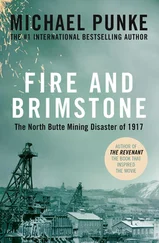‘Fake a suicide,’ said Ísak. ‘I don’t know, a fall? Hang him somewhere?’
‘That’s horrible,’ Harpa said. ‘I think I am going to be sick.’
‘I’ll take him down to the sea for a swim,’ said Björn. ‘Sindri, you can help me. OK, give me your phone number, Harpa. You go to B5 with Ísak, but make sure you arrive separately. Make a fuss, but try not to get thrown out; we need you there as long as possible. I’ll get rid of the body now and call you in an hour or two. Then you can come back to my brother’s place with me. We can go through the details of your story then.’
Harpa nodded. She pulled herself together and set off for Bankastraeti and the bar, Ísak following by a different route.
Even though the plan was made up on the spot and there were plenty of holes in it, it worked. Harpa could never have thought of it. It took Ísak’s brains and Björn’s calm.
She had coped with the police questioning well. If it hadn’t been for Björn she would have cracked. He gave her the strength and determination to stick with her story. And now she was going to have to go through it all again, but this time she wasn’t sure she would be able to do as good a job.
She heard a motorbike approaching fast along Nordurströnd. She heard it come to a stop outside the house.
Her heart leapt. She ran out of the house and threw herself into the arms of the driver even before he had a chance to take his helmet off.
‘Oh, Björn, I’m so glad you are here.’ She began to sob.
He slipped off the helmet and stroked her hair. ‘There, there, Harpa. It’s all going to be OK.’
She pulled back. ‘It’s not going to be OK, Björn. I killed someone. I’m going to hell. I’m in hell.’
‘There is no hell,’ Björn said. ‘You feel guilty, but you shouldn’t. Of course killing people is wrong, but you didn’t mean to kill him, did you? It was an accident. People die in accidents.’
‘It wasn’t an accident,’ said Harpa. ‘I attacked him.’
‘The whole thing happened because Sindri and that kid egged you on. They were the ones who made you call him up and get him to come out and meet you. What we both did wrong was to go along with them. Look at me, Harpa. You’re not a bad person.’
But Harpa didn’t look at him. She pressed herself into Björn’s leather-clad chest. She wanted to believe him. She wanted so desperately to believe him.
November 1934
HALLGRÍMUR LOOKED OUT over the snow as he made his way to the barn where the sheep were huddled together for the winter. He had to check on the hay.
It was ten o’clock and just getting light. The snow, which had fallen a few days before, glowed a luminescent blue, except at the top of the far mountains where the rising sun painted it red. He could still see the dark shapes of the twisted rocky waves of the Berserkjahraun. The warmth of the lava stone meant that the snow always melted there first.
A cold wind whipped in from the fjord. Hallgrímur saw a small figure tramping his way across the snow towards the little church. Benni.
Hallgrímur hadn’t seen much of his friend over the past few weeks, but he felt sorry for him. Benedikt’s father’s disappearance had taken everyone by surprise. His mother had not the faintest clue where her husband might have gone. Search parties went out everywhere: over the Bjarnarhöfn Fell in case he had been looking for a lost sheep, along the shore in case he had fallen into the sea, over the Berserkjahraun, into the towns of Stykkishólmur and Grundarfjördur. When nothing turned up, the search went further afield: over the mountains to the south and the Kerlingin Pass, along the coast to Ólafsvík, the sheriff down in Borgarnes was informed.
There was no sign of him anywhere.
Hallgrímur had joined in the search parties, sticking closely to his father wherever he went. He was amazed and impressed by his father’s determination to help, the long hours he spent on the fells looking for a body he knew lay at the bottom of a lake only a few kilometres away.
The atmosphere at Bjarnarhöfn was awful. His father and mother didn’t talk. The hatred was palpable. Hallgrímur’s brother and sisters assumed it was grief and shock. Only Hallgrímur knew the real reason.
The boy hated his mother for what she had done with Benni’s father. And, although he knew it was wrong, he couldn’t help admiring his father for doing something about it.
Of course things were much worse at Hraun. Benni’s mother had been demented with worry, but she was a strong woman and she didn’t let the farm slip. Neighbours were eager to help.
Where had Benedikt’s father gone? The theories became more and more wild. The two wildest were that he had emigrated to America with a woman, and that the Kerlingin troll had got him.
More sober heads assumed he had somehow fallen into Breidafjördur and been swept away into the ocean.
Hallgrímur walked over the snow-covered home meadow down to the church. It was little more than a hut, with black painted wooden walls and a red metal roof. There was no spire, just a white cross above the entrance. It was surrounded by a low wall of stone and turf, and a graveyard of a mixture of old grey headstones and newer white wooden crosses. Hallgrímur’s ancestors lay there. One day, in the far off future, perhaps in the twenty-first century if he was lucky, Hallgrímur would join them.
There was no pastor of Bjarnarhöfn. The pastor at Helgafell, the small bump in the distance near the town of Stykkishólmur, held services there once a month.
Hallgrímur opened the door. Benni was sitting in the front pew, staring at the altar. He had a book on his lap. Hallgrímur recognized it, it was Benedikt’s copy of the Saga of the People of Eyri .
‘Hello,’ said Hallgrímur, joining him. ‘What are you doing?’
‘I am trying to pray,’ said Benedikt.
‘What for?’ said Hallgrímur. ‘They won’t find him.’
‘For his soul.’
‘Ah,’ said Hallgrímur. He had never quite got to grips with the concept of soul. ‘Are you all right, Benni?’
‘No. I feel so bad for my mother. She has no idea what happened to Dad and she will never find out. Unless I tell her.’
‘You can’t do that,’ said Hallgrímur.
‘Why not?’ said Benedikt. ‘I think about it all the time.’
‘It will get us into trouble.’
‘Not very much trouble,’ said Benedikt. ‘We didn’t kill him.’
Hallgrímur frowned. ‘It would get my father into a lot of trouble.’
‘Perhaps he deserves it.’ Benedikt glared at Hallgrímur.
‘And your father, too. I know he’s dead, but everyone thinks he’s a hero. They won’t think that if they know what he did.’
‘Maybe.’
The two boys stared at the altar and its simple cross.
‘Benni?’
‘Yes?’
‘If you do tell anyone, I will kill you.’ Hallgrímur didn’t know why he made the threat: it just came out of nowhere. But he knew he meant it. And the fact that he had uttered it in the church gave it greater meaning.
Benedikt didn’t answer.
‘Tell me a story from in there, Benni,’ Hallgrímur said, tapping the book on Benedikt’s lap.
‘All right,’ said Benedikt. He was still staring ahead at the altar, not looking at Hallgrímur. ‘Do you remember Björn of Breidavík?’ Benedikt didn’t need to open the book: he knew all the stories.
‘The one who went to America and became a chieftain?’
‘Yes. Do you want to know why he went there?’
‘Why?’
‘There was a beautiful woman called Thurídur who lived at Fródá. It’s near Ólafsvík.’
‘I know.’
‘Even though she was someone else’s wife, Björn kept on going to see her. He loved her.’
Читать дальше












